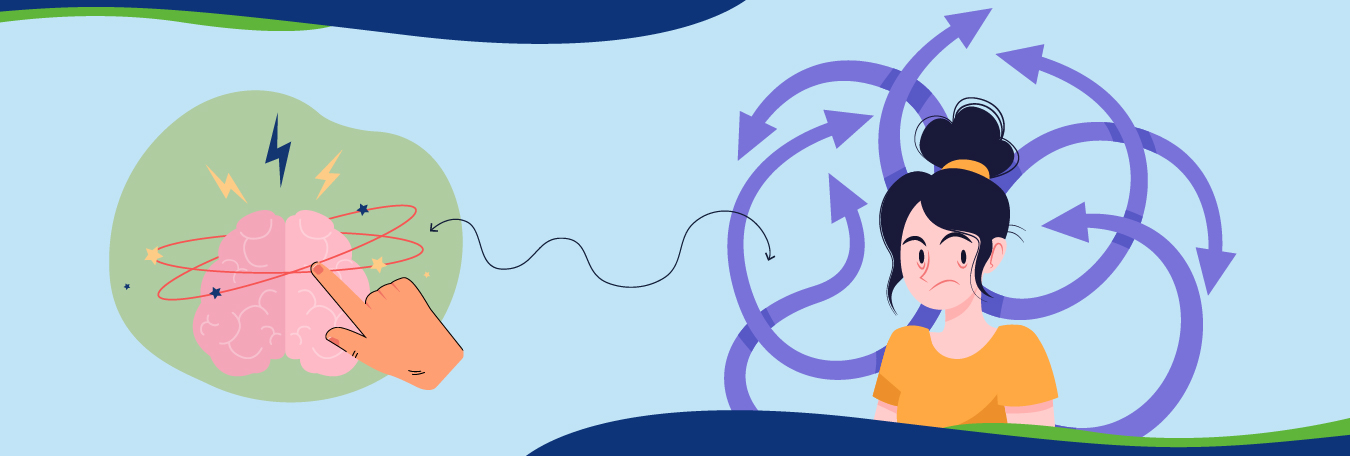High-functioning depression is a term for persistent depressive disorder (PDD) in which people with the condition look and act normal and may even hold a job or excel academically. Different from MDD and psychosis, which quite often have severe levels of symptoms rendering the affected individual almost unfunctional, high-functioning depression is less apparent. It is alright for people to go through work, keep friendships, endure all general tasks, and experience chronic depression such as chronic lowered mood, fatigue, or feelings of hopelessness within.
Here in this blog, we will be discussing what high-functioning depression is, the symptoms of high-functioning depression, the cause of high-functioning depression, how to treat high-functioning depression, and how high-functioning depression impacts both males and females. We will also talk about how this condition can be diagnosed and what kind of treatment or strategies for dealing with it a person and their loved ones can expect.
Understanding High-Functioning Depression
High-functioning depression is ranked as a persistent type of depression that has been lasting for not less than two years. Though it does not result in more serious disruption of parts of the daily activities most of the time, it is characterized by a chronic mild depressive condition that seems to make life tough. Individuals with high-functioning depression and anxiety don’t necessarily get the low levels associated with major depression. Still, they describe feeling like they’re just existing and not living with passion or happiness.
Additionally, due to the relatively mild manifestation of the symptoms that characterize high-functioning depression, many people can remain undiagnosed for years. But unlike casual use, long-term use can often have similar effects and lead to burnout, physical ailments, and more profound psychological disorders.
Read More: Will Depression Make You Tired?
Common Signs Of High-Functioning Depression
High-functioning depression may not always be obvious, but some common symptoms can include:
- Chronic Low Mood: A low mood lasts for years or indefinitely, especially two years and over.
- Fatigue and Low Energy: Poor motivation even when they have had enough sleep.
- Difficulty Concentrating: Problems concentrating for some purpose or feeling like one’s mind is ‘fuzzy.’
- Irritability: If one becomes easily offended or upset in a situation they used to ignore, there may be an increased level.
- Loss of Interest: Common symptoms include less interest in activities or hobbies one used to enjoy.
- Self-Doubt and Low Self-Esteem: Persistent low self-esteem, self-unsuitability, and self-criticism.
- Difficulty Making Decisions: Having difficulty choosing things as simple as what to eat/ wear or where to go because one needs help deciding or is afraid to take the wrong one.
- Overeating or Loss of Appetite: Stomach problems include increased or lack of appetite, overeating, or under-eating.
- Sleep Disturbances: Sleeplessness or too much sleep without feeling rested.
These symptoms, however mild at some point, can gradually increase and take their toll on a person’s emotional well-being. In the long run, high-functioning depression becomes a chronic state, negatively affecting one’s relationships, work, and that individual’s overall health.

Causes Of High-Functioning Depression
In the same way as other types of depression, high-functioning depression also has no unique root cause. It is thus believed to be caused by a complex of genetic, biological, environmental, and psychological variables. Some potential contributing factors include:
- Genetics: Genetic susceptibility to depression pre-disposes anyone to high-functioning depression due to close lineage with the disorder.
- Brain Chemistry: Neurotransmitters are responsible for controlling mood and emotions, and the abnormality of these, including serotonin and dopamine, may lead to depressive disorder.
- Personality Traits: They also include self-defeating patterns of thought processes and behaviors that predispose the person to high-functioning depression, including perfectionism, low self-esteem, and excessive self-criticism.
- Chronic Stress: Persistent stress through job stress, marital stress, or financial stress predisposes one or aggravates one to depression.
- Trauma or Loss: Having a traumatic period can lead to depression, pointing to the death of a close person, persecution, change of position, or other important negative life events to a vulnerable state of depression.
Read More: Is There A Link Between Headaches and Depression?
High-Functioning Depression In Men Vs. Women
As much as high-functioning depression can occur to anybody in the population of the world, it takes a different facet in males and females due to the cultural norms placed on them.
- In Women: Female patients are believed to be affected and more likely to report their feelings and more inclined to look for help for an emotional health problem than male patients. Nonetheless, since high-functioning depression is not outwardly obvious, some women will avoid their symptoms as just ‘the blues’ or a ‘phase.’ The symptoms of high-functioning depression include increased feelings of guilt, self-doubt, and perfectionism. They can be compounded in women who work, care for families and homes, and have other responsibilities. Fluctuations in hormone levels like those seen with menstrual cycle, pregnancy, and post-partum or menopause are also known to worsen depression in women.
- In Men: While women are more likely to approach their doctors seeking treatment for mental health problems, men are less likely to do so because of the cultural male stereotype that stops them from expressing their feelings. Therefore, more often, functioning depression in men remains undiagnosed for longer periods. What will manifest as depression in a woman may manifest as anger, frustration, or irritability in a man. They may also avoid dealing with the situation by adopting certain negative behaviors, including the consumption of excessive alcohol, substance use, or social isolation. An extremely common experience for men with functional depression is the expectation to push through to maintain their high levels of productivity and perform optimally at the workplace, therefore experiencing burnout and even worsening depressive signs.
How To Recognize High-Functioning Depression
This is because high-functioning depression refers to a mental health disorder in which the affected person appears to be fully functional. However, some subtle indicators to watch for include:
- Persistent Fatigue: Stomachache, despite eating good meals, and constant fatigue, even when one has slept the whole night.
- Emotional Numbness: Lack of ability to perceive feelings, occurrences, or people.
- Neglecting Self-Care: Missed meals, inactivity, or lack of proper hygiene, to mention but a few.
- Increased Irritability: Quick to anger, short-tempered, and handling a situation with irrational outbursts over minor issues.
- Perfectionism or Overachievement: People acting or performing at the highest level possible to disguise low self-esteem.
- Withdrawing from Social Activities: Avoiding social-related functions/formals/events or even interactions one was keen on before.
Read More: Symptoms and Causes of Depression – How to Treat Them?
Treatments For High-Functioning Depression
While high-functioning depression can be distressing, they aren’t impossible to manage. There is psychotherapy, modification of behaviors, and some medication that can enable patients who are suffering from the disorder to lead quality lives.
- Cognitive Behavioral Therapy (CBT): It’s called cognitive behavioral therapy or CBT- it is one of the most common types of talk therapy that aims at new thought processes that cause depression and PTSD. Thinking about modifying self-critical patterns and replacing them by dealing with other types of thinking helps the individual start changing their attitude and stop negative feelings.
- Medication: Selective serotonin reuptake inhibitors are one example of medications that can assist in the change in the brain’s elements and fade the signs of functional depression. Therapies and medications may be given together to increase the effectiveness of the treatment plan.
- Mindfulness and Stress Management: Accommodation implies taking lessons in stress and staying focused lessons may be in meditation or deep breathing exercises.
- Exercise and Nutrition: Physical exercise improves feelings and energy, and good nutrition improves mental health. It does not have to be some drastic change where you hit the gym every day or switch to eating only raw vegetables; even a small change, like walking to work or adding more fresh vegetables to your plate daily, counts.
- Building a Support System: Talking to friends or relatives or in support organizations can reduce the feeling of loneliness that people with high-functioning depression experience. Encouragement and accountability are vital to a definite agenda to commence recovery; family support is thus important.
Summary!
High-functioning depression is better seen as a detached and enigmatic mental health condition that impairs some aspects of a person’s life. Though it may not entirely affect an individual’s life by disrupting different activities, it greatly affects well-being. Understanding these symptoms, going to a doctor and or therapist, and applying the right course of treatment should enable people with high-functioning depression to have quality lives. If you are suffering from high-functioning depression and looking for telehealth mental health services, then you are at the right platform. Inland Empire Behavioral Group is the best mental health treatment platform for the best mental health services.




